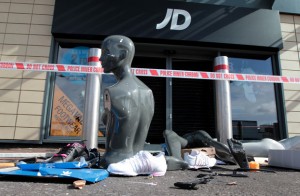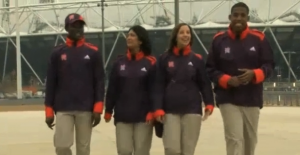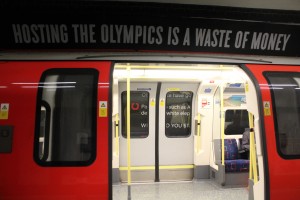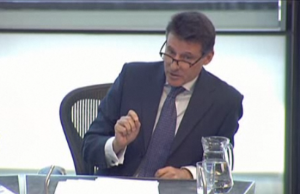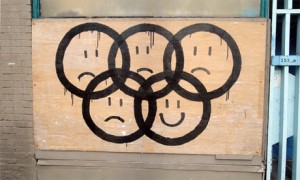The imminent Olympics will take place in a city still recovering from the riots. Seven months ago we were shocked by the images that dominated our television screens. The riots, in which around 15,000 people took part, were characterized by the looting of designer stores, such as Footlocker, JD Sports, Orange, O2 and Adidas. Roughly 50 per cent of the recorded offences from the riots were acquisitive in nature. The Riots, Communities and Victims Panel, established by the Prime Minister, Deputy Prime Minister and the Leader of the Official Opposition, this week published a report documenting the panel’s findings and recommendations to help prevent future riots. Rampant materialism is considered an underlying cause of last year’s lawlessness. In addition to the lack of economic opportunities, a breakdown of community ties and the loss of trust in the police and public sector, the panel considered aggressive advertising of designer brands a key cause of last year’s rioting. Aggressive marketing and enforcement of branding creates a demand for objects that low-income sectors of the society simply cannot afford. Big businesses, targeting children and young adults, have created a damaging consumerist culture in some of the most deprived parts of the country. In fact, the panel’s Neighbourhood Survey found that 85 per cent of people feel advertising puts pressure on young people to own the latest products and two-thirds of people feel materialism among young people is a problem within their local area.
Yet, aggressive advertising is a big feature of the Olympics (the LOGOC* have their very own report entitled Brand Protection) and ambush marketing (the association and consequent capitalization on a particular event without paying sponsorship fees) is one of the London Organising Committee of the Olympic Games’s major concerns. In addition to the concentration of world-famous sporting personalities, the Olympics has now become an effective publicity platform for the advertisement of a plethora of objects, many of which are completely unrelated to sports. In an attempt to keep up with a world rebuilt in a corporate image, the Games have secured sponsorship deals domestic and abroad, ironically culminating in a £20m-plus sponsorship deal with Cadbury. In light of the UK’s childhood obesity problem, some argue that a sweet brand should not promote a sporting event.
The Games now embody changes in our society that are incredibly remote from their notional or founding ideals. Increasingly obsessed with the global gaze and the prestige that hosting the Olympics will achieve within the media, the games are keen to promote big brands, and discourage (if necessary by using force) smaller brands that challenge the hegemony of prime corporate sponsors (including MacDonald’s, Visa and Dow Chemical). This will undoubtedly translate into hours of sponsor-related TV ads plaguing our television screens during the summer months and the city of London being literally branded by these bigger brands. In a city agitated by record levels of unemployment and rising social protests, the continual bombardment on the TV screen by designer brands of over-priced products, which will now be rendered all the more desirable and unaffordable by the Olympics logo stamped on the side, is surely not a good thing. The Riots, Communities and Victims Panel’s recommendation that steps need to be taken to reduce the amount of excessive and aggressive advertising aimed at young people should perhaps, in the essence of social responsibility, be listened to sooner, rather than later.
Click London Olympics for more blogs
See our Olympics project pages for more information and videos.
Or visit PlanA our general blog on urbanism, planning and architecture.
Spectacle homepage
Befriend Spectacle.Docs on Facebook
Follow SpectacleMedia on Twitter

